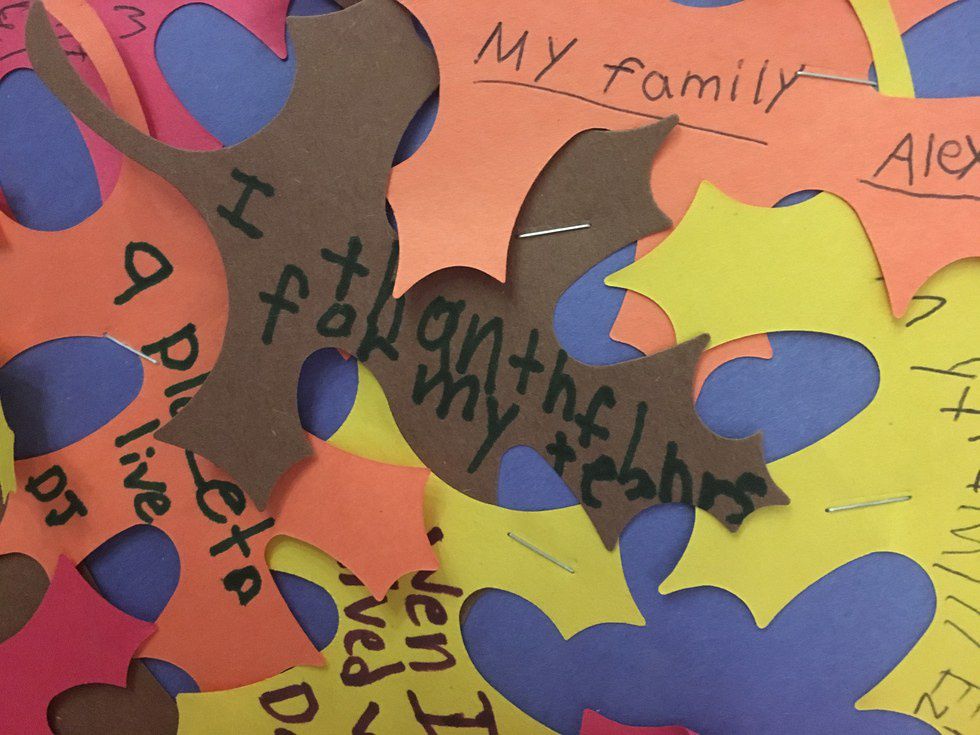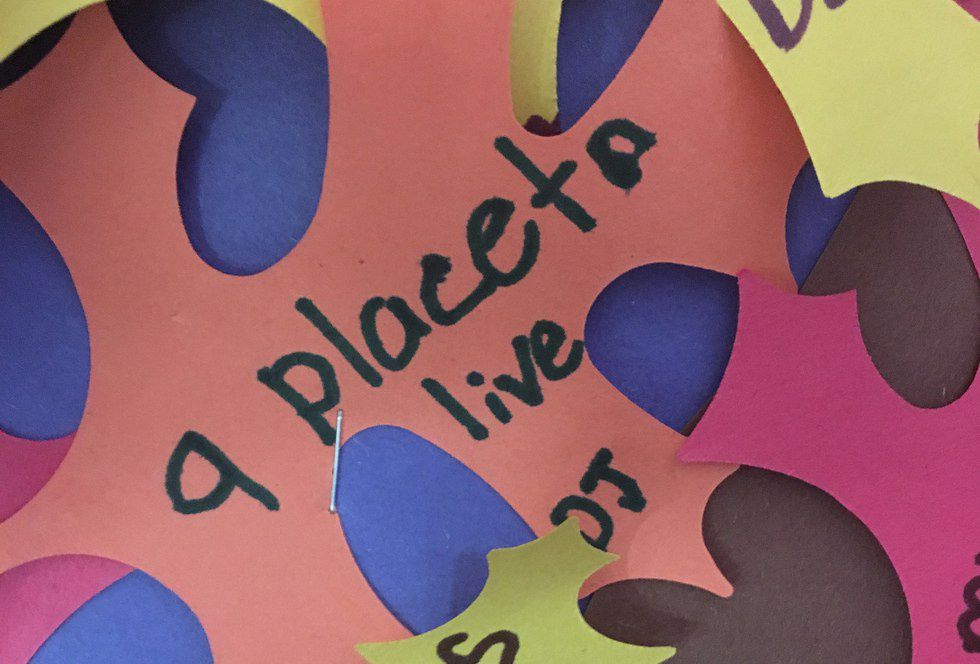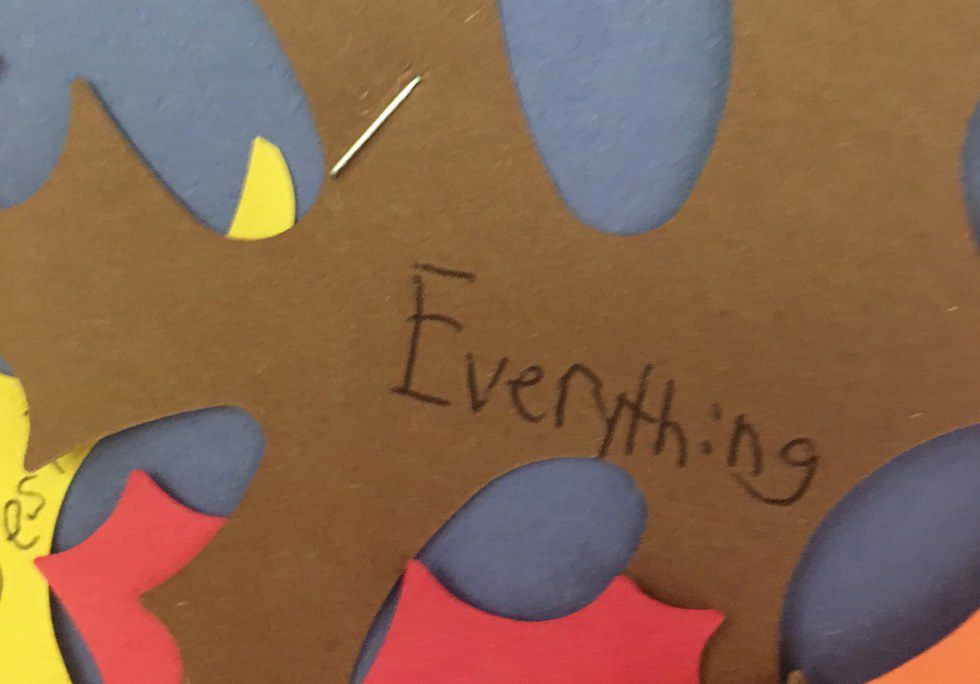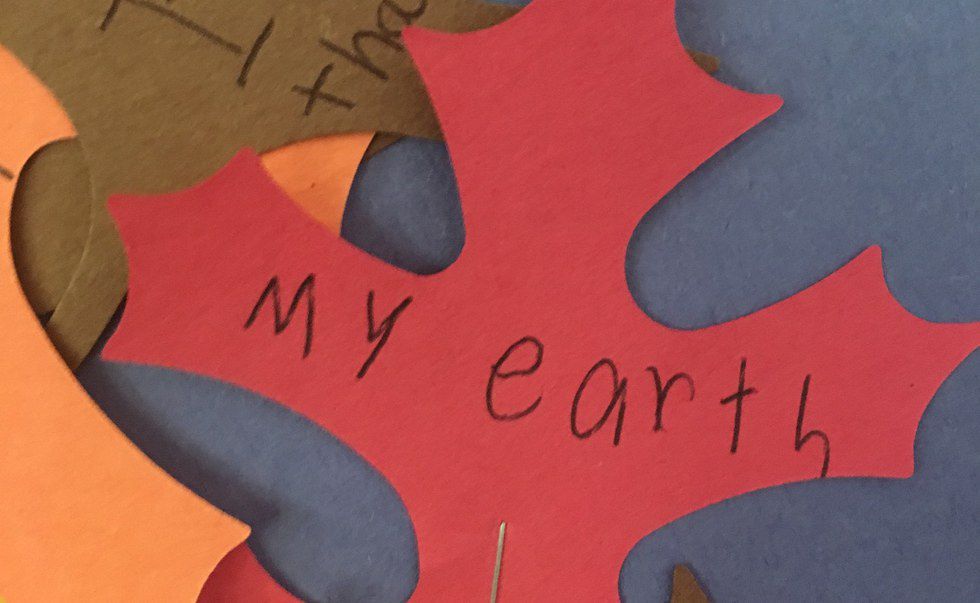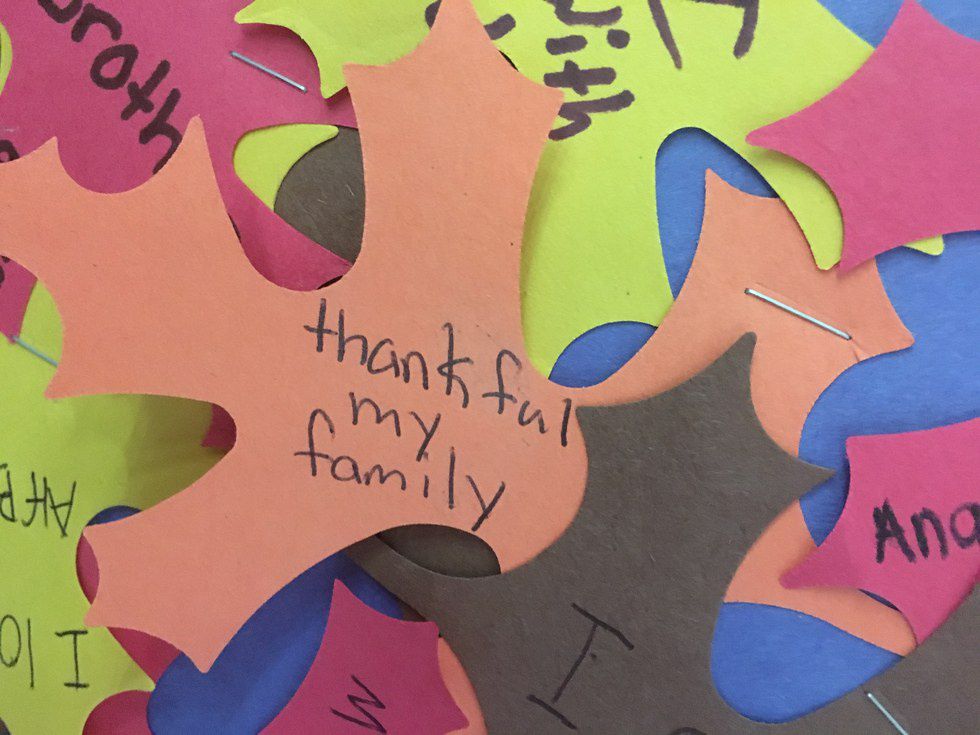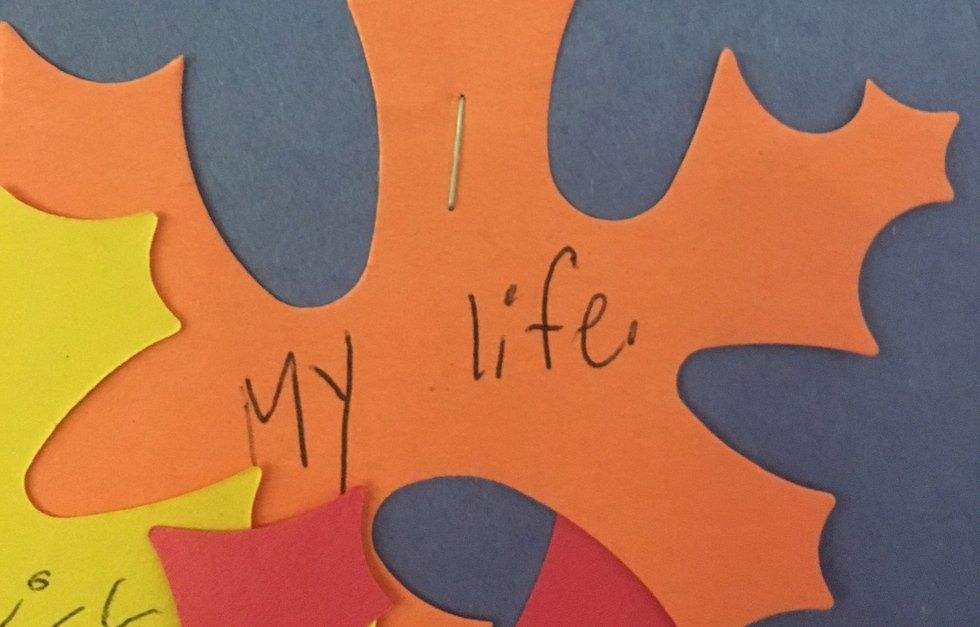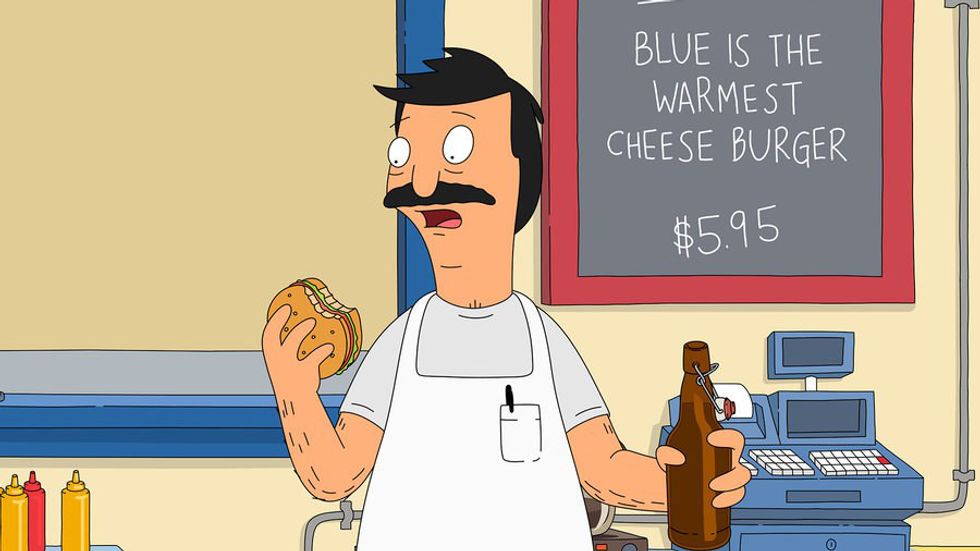As soon as the clock hit midnight turning October 31st into November 1st, my mind went haywire with the thought of Thanksgiving. During school, the stretch through November until winter break is especially tiring because young students are officially losing the beginning-of-school wonder. They are becoming bored and restless as they are cooped up inside for longer hours of the day. The promise of playing video games when the sun goes down creeps up in their minds sooner than it was before daylight savings time. However, as they spend more time inside, they have more time to think, and more to teach us as adults.
For the past few years I have implemented the idea of a “Thankful Tree” in my after school program. I cut leaves and create a bare tree trunk out of construction paper, and simply ask my students “what are you thankful for?”
One question. One very loaded question.
Each year this has been answered with the question of what that means. This surprised me at first, because how could someone not know what it means to be thankful? What parent does not think to instill this crucial idea into their child’s mind? I pondered this for a while before I truly understood the nature of this question. Children are never actually taught the reason behind why they say, “Thank you.” It is not their choice to say it when they receive a gift, they just know they have to. They know when to be thankful, but not why.
I am not pointing fingers at any parents when I say this, because I too as an aspiring educator, never considered the actual concept of thankfulness. Sure, there are tons of things we are thankful for in our everyday lives, but only because we know others do not have the same privileges. As a child I was unaware of poverty and homelessness, abuse and neglect, depression and loneliness. I thought everyone was as lucky as I was, I thought it was natural to have a home and a family, food on the table, and a bed to sleep in. The minds of our youth are innocent so they do not know what they should be thankful for.
Or so I thought.
I explained the concept of being thankful by describing it as anything they would be sad without, something they love, or care about, anything that makes them happy. I know I could have been more elaborate, given such a loaded concept a more glamorous explanation, but I wanted them to understand in the most basic way. I was prepared to have answers such as “my Pokemon cards,” or “my stuffed animals,” because those were objects that made me happy when I was their age.
Of course, I was wrong though (for the 275489302 time since I began working with elementary students).
“What are you thankful for?”
My teachers
A place to live
Everything
My Earth
My family
“My life”
The moral of the story is this, listen to your children. Listen to the little girl behind you in line, to the boy beside you at a baseball game. Listen to your niece, your nephew, little siblings, cousins. Listen to the children around you. Do not underestimate the value of a child’s words. Our youth may be the product of a broken economy, a dying environment, a nation split in two, but they are the reason we will heal. They know more than I ever did at their age, they are more aware of people’s feelings and more empathetic to the suffering of others. They are beautiful, intelligent, inspiring, they know more than you think, and they have more to teach us than we could ever imagine.




